Unless we remember we cannot understand.
E. M. FORSTEROnly a writer who has the sense of evil can make goodness readable.
More E. M. Forster Quotes
-





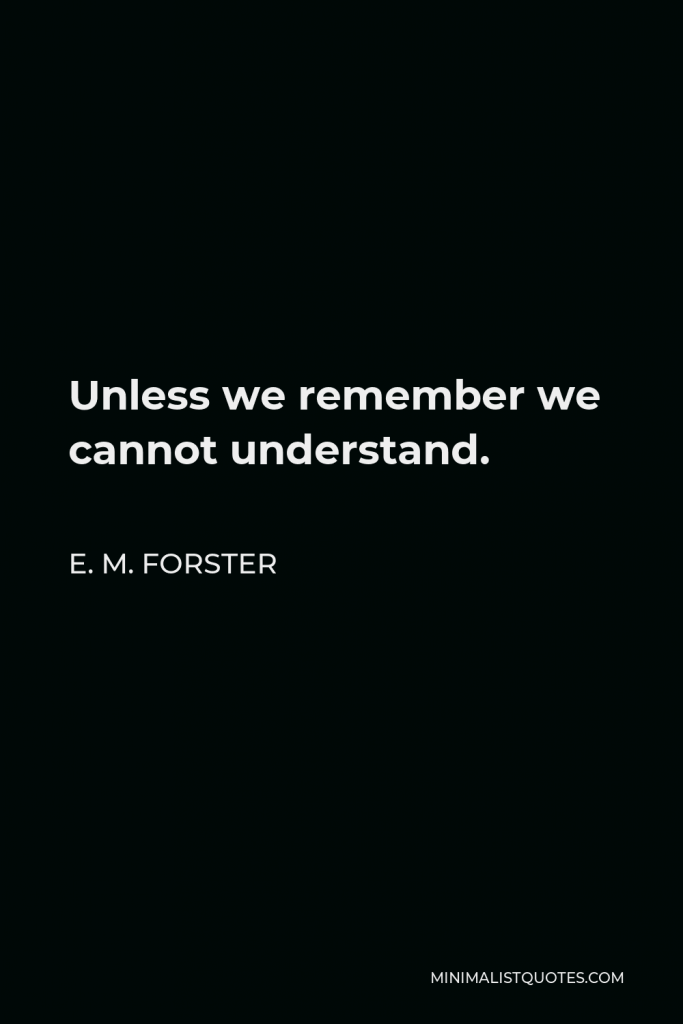

-





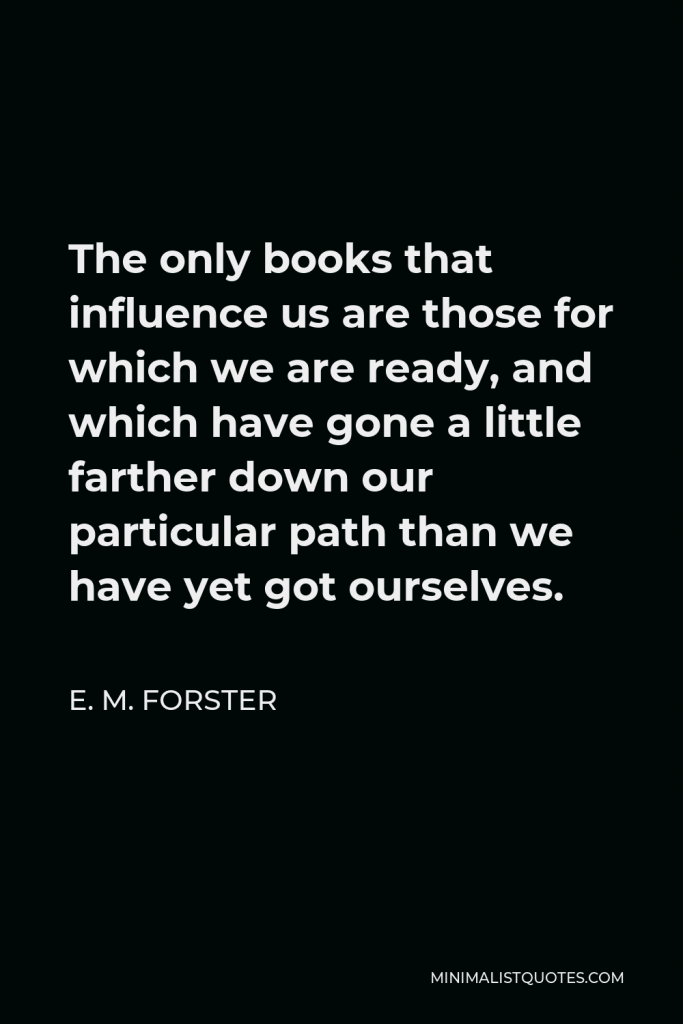

The only books that influence us are those for which we are ready, and which have gone a little farther down our particular path than we have yet got ourselves.
E. M. FORSTER -







One person with passion is better than forty people merely interested.
E. M. FORSTER -







There is an aristocracy of the sensitive. They represent the true human tradition of permanent victory over cruelty and chaos.
E. M. FORSTER -






Books have to be read it is the only way of discovering what they contain.
E. M. FORSTER -





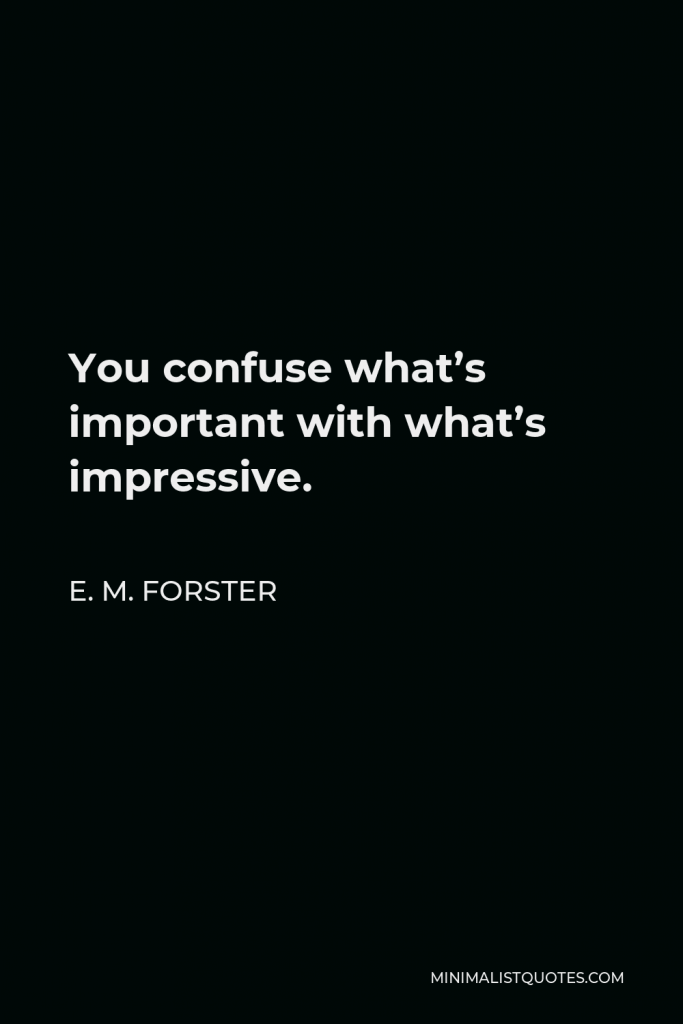

You confuse what’s important with what’s impressive.
E. M. FORSTER -





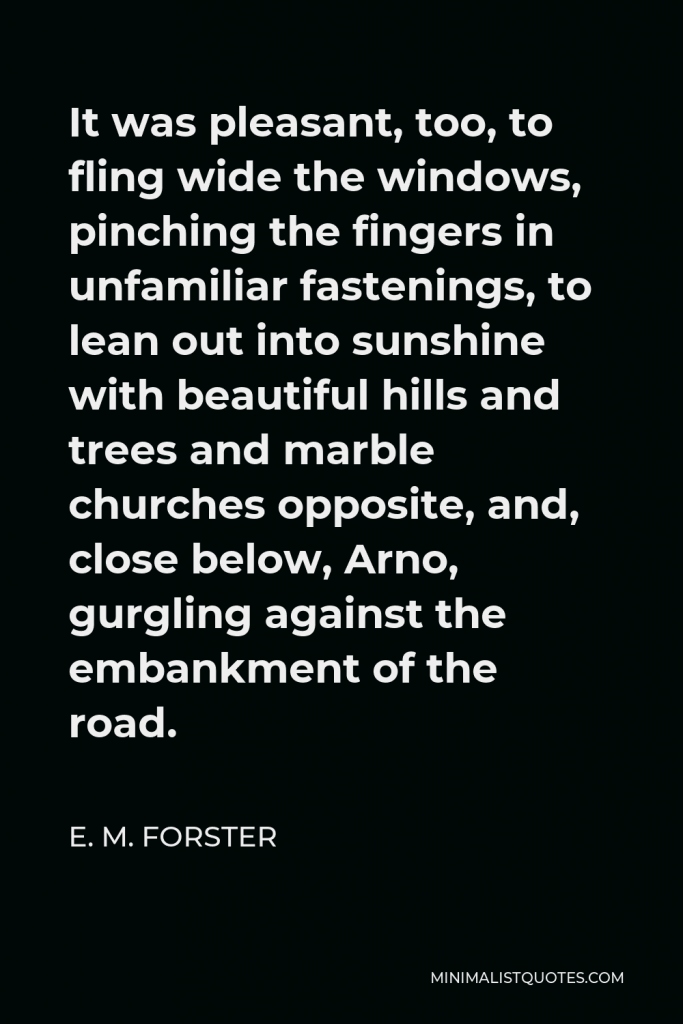

It was pleasant, too, to fling wide the windows, pinching the fingers in unfamiliar fastenings, to lean out into sunshine with beautiful hills and trees and marble churches opposite, and, close below, Arno, gurgling against the embankment of the road.
E. M. FORSTER -





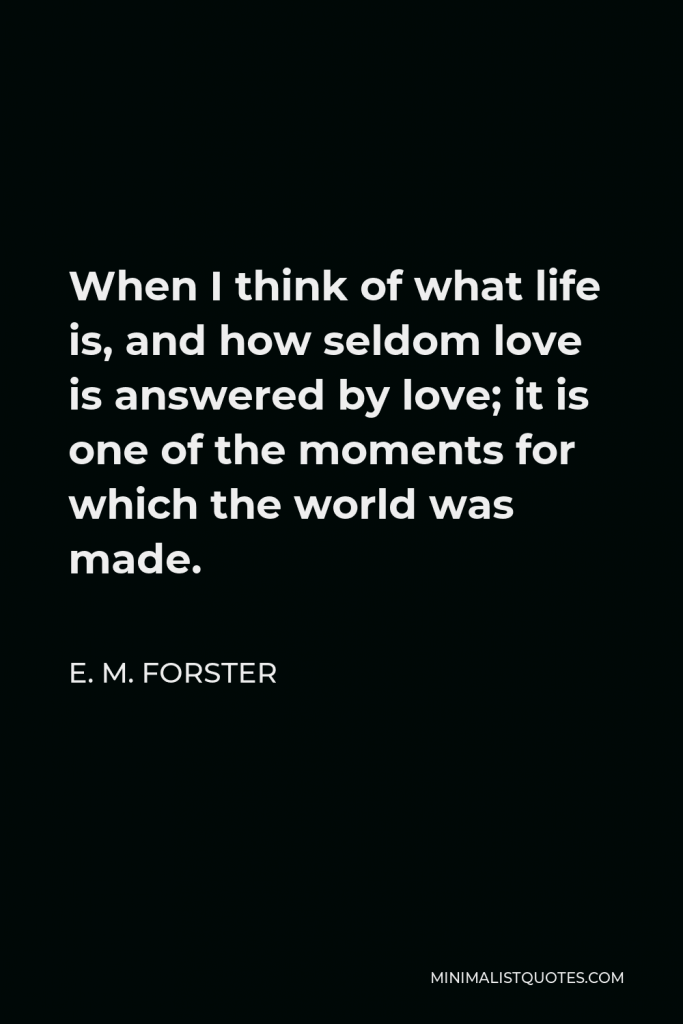

When I think of what life is, and how seldom love is answered by love; it is one of the moments for which the world was made.
E. M. FORSTER -







Life is a public performance on the violin, in which you must learn the instrument as you go along.
E. M. FORSTER -







Only a writer who has the sense of evil can make goodness readable.
E. M. FORSTER -







How can I know what I think till I see what I say?
E. M. FORSTER -





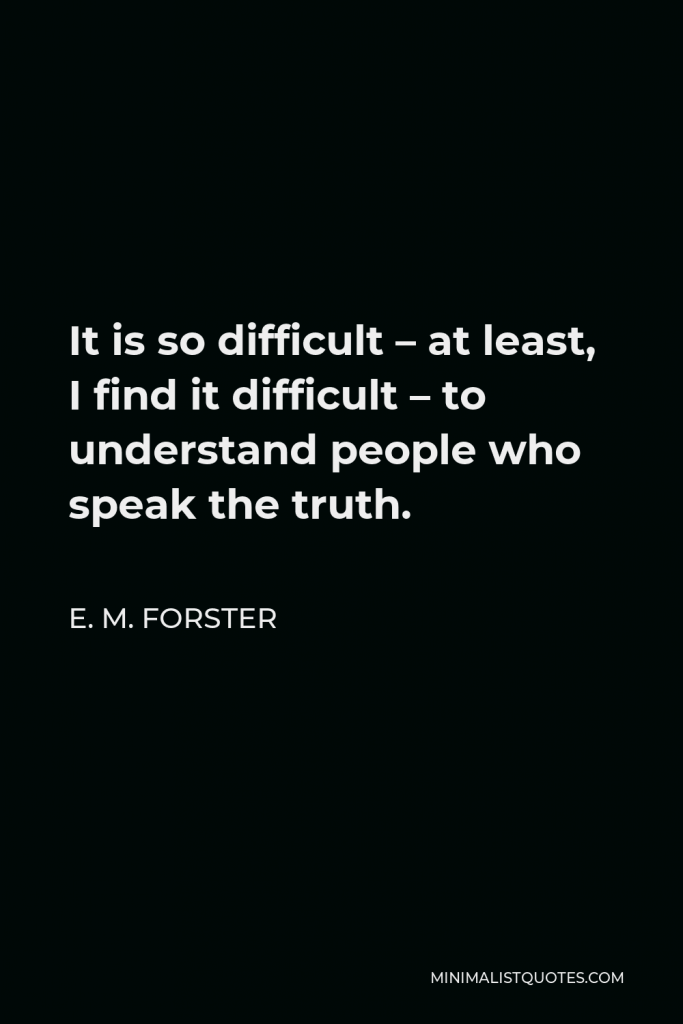

It is so difficult – at least, I find it difficult – to understand people who speak the truth.
E. M. FORSTER -





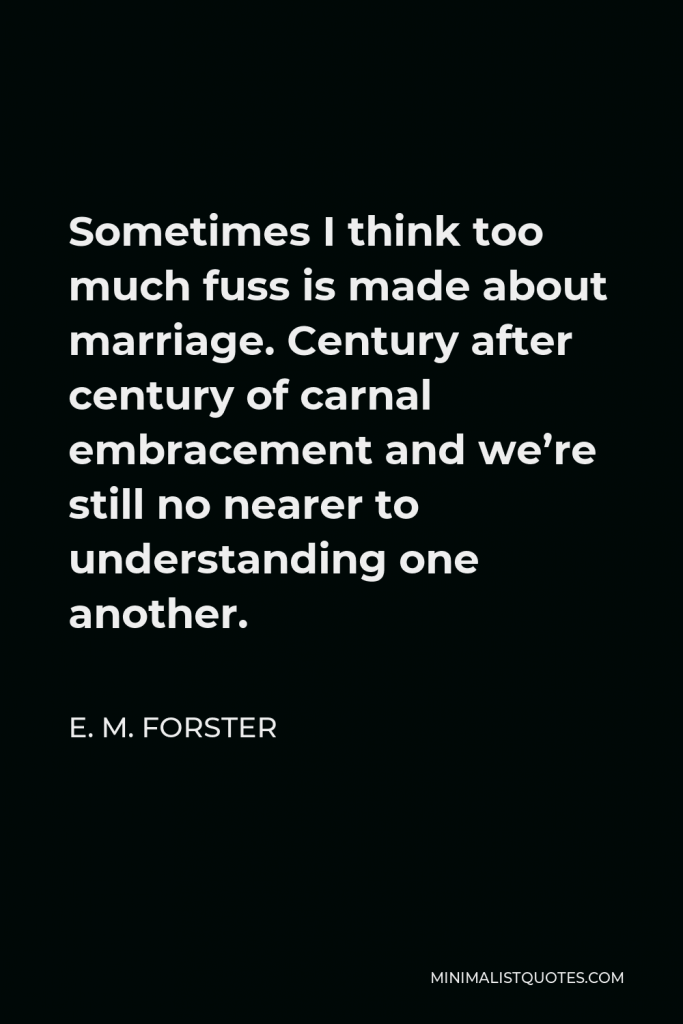

Sometimes I think too much fuss is made about marriage. Century after century of carnal embracement and we’re still no nearer to understanding one another.
E. M. FORSTER -





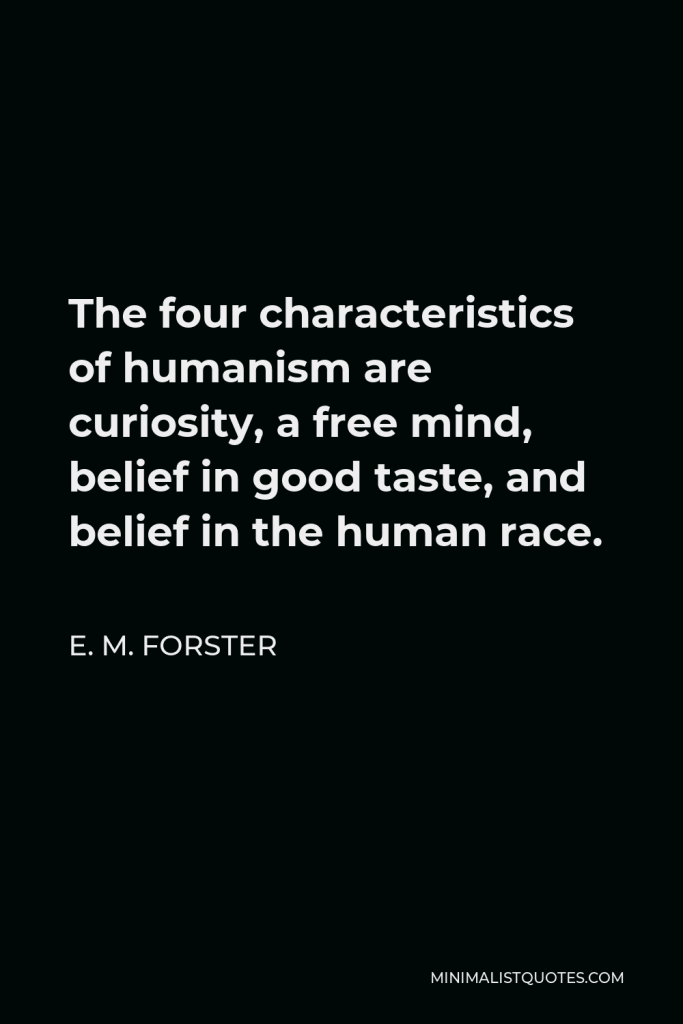

The four characteristics of humanism are curiosity, a free mind, belief in good taste, and belief in the human race.
E. M. FORSTER -





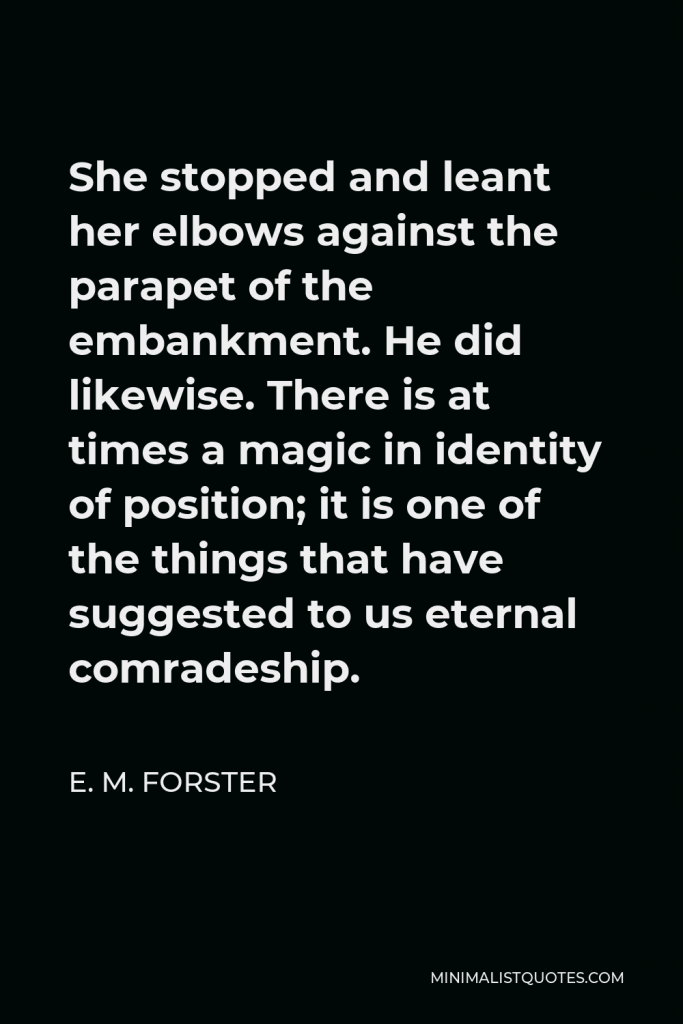

She stopped and leant her elbows against the parapet of the embankment. He did likewise. There is at times a magic in identity of position; it is one of the things that have suggested to us eternal comradeship.
E. M. FORSTER -







Think before you speak is criticism’s motto; speak before you think, creation’s.
E. M. FORSTER







